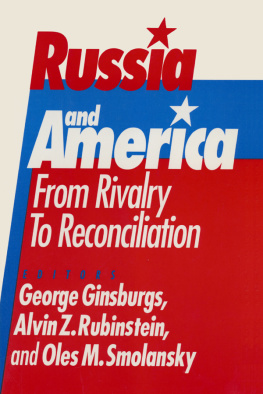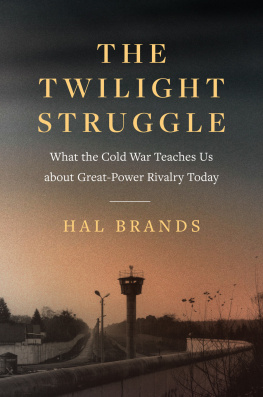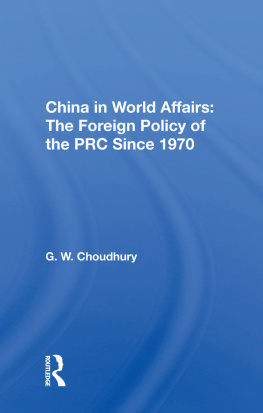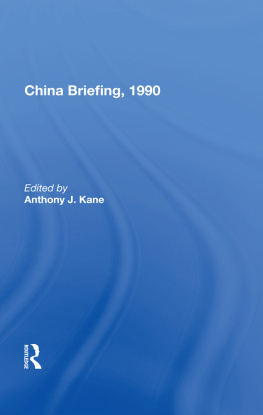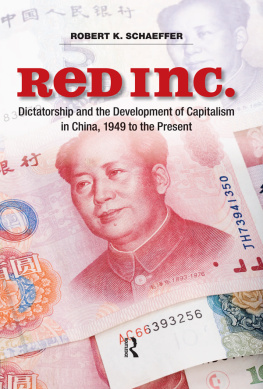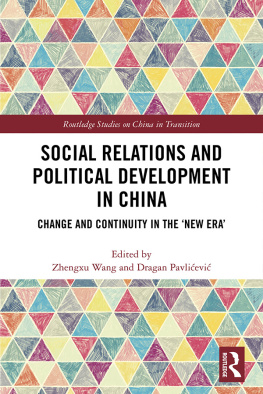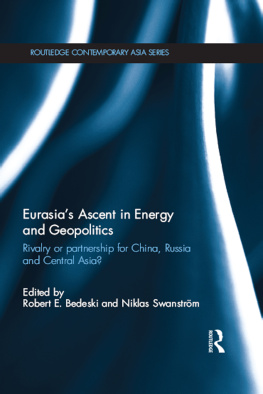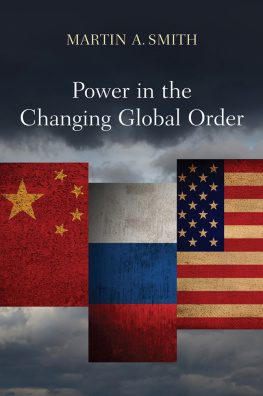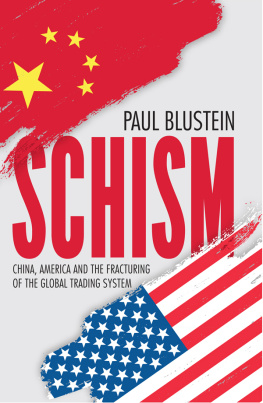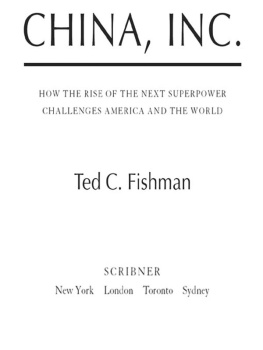Russia
and
America
From Rivalry
To Reconciliation
Russia
and
America
From Rivalry
To Reconciliation
E D I T O R S
George Ginsburgs,
Alvin Z. Rubinstein,
and Oles M. Smolansky
First published 1993 by M.E. Sharpe
Published 2015 by Routledge
2 Park Square, Milton Park, Abingdon, Oxon OX14 4RN
711 Third Avenue, New York, NY 10017, USA
Routledge is an imprint of the Taylor & Francis Group, an informa business
Copyright 1993 Taylor & Francis. All rights reserved.
No part of this book may be reprinted or reproduced or utilised in any form or by any electronic, mechanical, or other means, now known or hereafter invented, including photocopying and recording, or in any information storage or retrieval system, without permission in writing from the publishers.
Notices
No responsibility is assumed by the publisher for any injury and/or damage to persons or property as a matter of products liability, negligence or otherwise, or from any use of operation of any methods, products, instructions or ideas contained in the material herein.
Practitioners and researchers must always rely on their own experience and knowledge in evaluating and using any information, methods, compounds, or experiments described herein. In using such information or methods they should be mindful of their own safety and the safety of others, including parties for whom they have a professional responsibility.
Product or corporate names may be trademarks or registered trademarks, and are used only for identification and explanation without intent to infringe.
Chapter 2 and 4 appeared in Chinese Sociology and Anthropology,
Vol. 28, No. 2 (Winter 1995-96); chapter 3 appeared in Ethnology,
Volume 25, No. 4 (Fall 1996); chapters 5, 7,8. and 9 appeared in
Chinese Sociology and Anthropology, Vol. 28, No. 4 (Summer 1996).
Library of Congress Cataloging-in-Publication Data
Russia and America: from rivalry to reconciliation / edited by George Ginsburgs,
Alvin Z. Rubinstein, and Oles M. Smolansky.
p. cm.
Includes bibliographical references.
ISBN 1-56324-284-2 (c).ISBN 1-56324-285-0 (p)
1. United StatesForeign relationsRussia (Federation)
2. Russia (Federation)Foreign relationsUnited States
I. Ginsburgs, George.
II. Rubinstein, Alvin Z.
III. Smolansky, Oles M.
E183.8.R9R88 1993
327.47073dc20
93-15877
CIP
ISBN 13:9781563242854 (pbk)
ISBN 13:9781563242847 (hbk)
Contents
Viktor L. Israelyan
Donald D. Barry
Nicolai N. Petro
Robert J. Osborn
Nina Betyaeva
William C. Bodie
Martha Brill Olcott
Leonid Rudnytzky and Oleg G. Pocheptsov
Dilbar Turabekova
Sergo A. Mikoyan
George Ginsburgs
David T. Twining
Igor Ivanovich Lukashuk
Yarostav Bilinsky
Rajan Menon
Oles M. Smolansky
Alvin Z. Rubinstein
Henry Trofimenko
In the 1990s the United States and Russia find themselves at a watershed: the Cold War is over; the Soviet Union has been dissolved and replaced by fifteen independent nation-states; communism is discredited; and security for the two great powers is more a function of domestic reform than external threat As we move into the postCold War era, U.S. and Russian leaders need to rethink basic assumptions about security, about foreign policy priorities, and about essential political alignments.
Moscow and Washington need to reconceptualize their relationship. Although no longer the hub of a vast imperial system, Moscow is the capital of the Russian Federation, the largest of the fifteen republics to emerge to independence as a result of the USSRs demise. By virtue of its possession of a preponderance of the former Soviet Unions nuclear and conventional forces, it is the most powerful, and it is the richest in resources. The Russian leadership under President Boris Yeltsin is committed to the return of Russia to Europe, to ending the isolation from the West that was a dominant feature of the period of Soviet rule. This process started under Mikhail Gorbachev, whose acquiescence to decommunization in Eastern Europe, reduction of Soviet forces in the area, and agreement to German reunification were intended to foster the Europeanization of Moscows policy. In the interest of pursuing a common European home, Gorbachev had implicitly accepted the dismantling of the common socialist alliance.
However, there has always been a certain ambivalence toward Europe among Russias ruling elite. In the mid-nineteenth century, two competing conceptions crystallized: Slavophiles versus Westernizers. The Slavophiles believed in the superiority and historical mission of Russias Byzantine, Eastern Orthodox, autocratic tradition; they exalted messianic nationalism, unity of the Slavs, and expansion across the Eurasian land mass. The Westernizers argued that Russia was part of Europe, albeit at a less advanced economic and political stage of development; they espoused liberalization of society and a constitutional system modeled on the British experience. Both of these currents of thought are very much alive in the Russian Federation today. The outcome of their competition will affect the kind of domestic order and foreign policy that Moscow develops and that the United States can support.
A number of Western observers have correctly noted that the return of Russia to Europe is by no means a foregone conclusion. Russian nationalism is one potentially destabilizing uncertainty. Another source of discord is opposition to Yeltsins commitment to a market economy and an end to the statist-style society of the past. Ethnic separatism, which was instrumental in undermining Gorbachevs reform efforts, could well erupt into civil war and precipitate a return to a repressive political system.
The immediate problem for the United States is how extensive a commitment to make to the transformation of Russia and its integration into the Western-dominated international order. In March 1992, former President Richard Nixon called Yeltsin the most pro-Western leader in Russian history. Under those circumstances then, he deserves our help. We have to realize that if Yeltsin fails, if freedom fails, the new despotism which will take its place will mean that the peace dividend is finished, we will have to rearm, and thats going to cost infinitely more than would the aid that we provide at the present time.
Russia needs an American policy, and America needs a Russian policy. Certainly, international security and stability depend on the ability of Russia and America to forge an essentially cooperative relationship. These essays, which were originally presented at a conference at the University of Pennsylvania on February 18 and 19, 1993, seek to analyze a range of critical issues that go to the heart of the relationship between Russia and the United States. The focus is primarily on developments in Yeltsins Russia and on their implications for U.S.-Russian relations.
To enhance our understanding of the erratic process of change that is taking place in Russia, we arranged for Russian, Ukrainian, and Uzbek scholars to comment on the essays of the American participants. These comments are included at the end of each section of this book. We hope that the total package will prove a welcome addition to the emerging assessment of the evolving Russian-American relationship.

